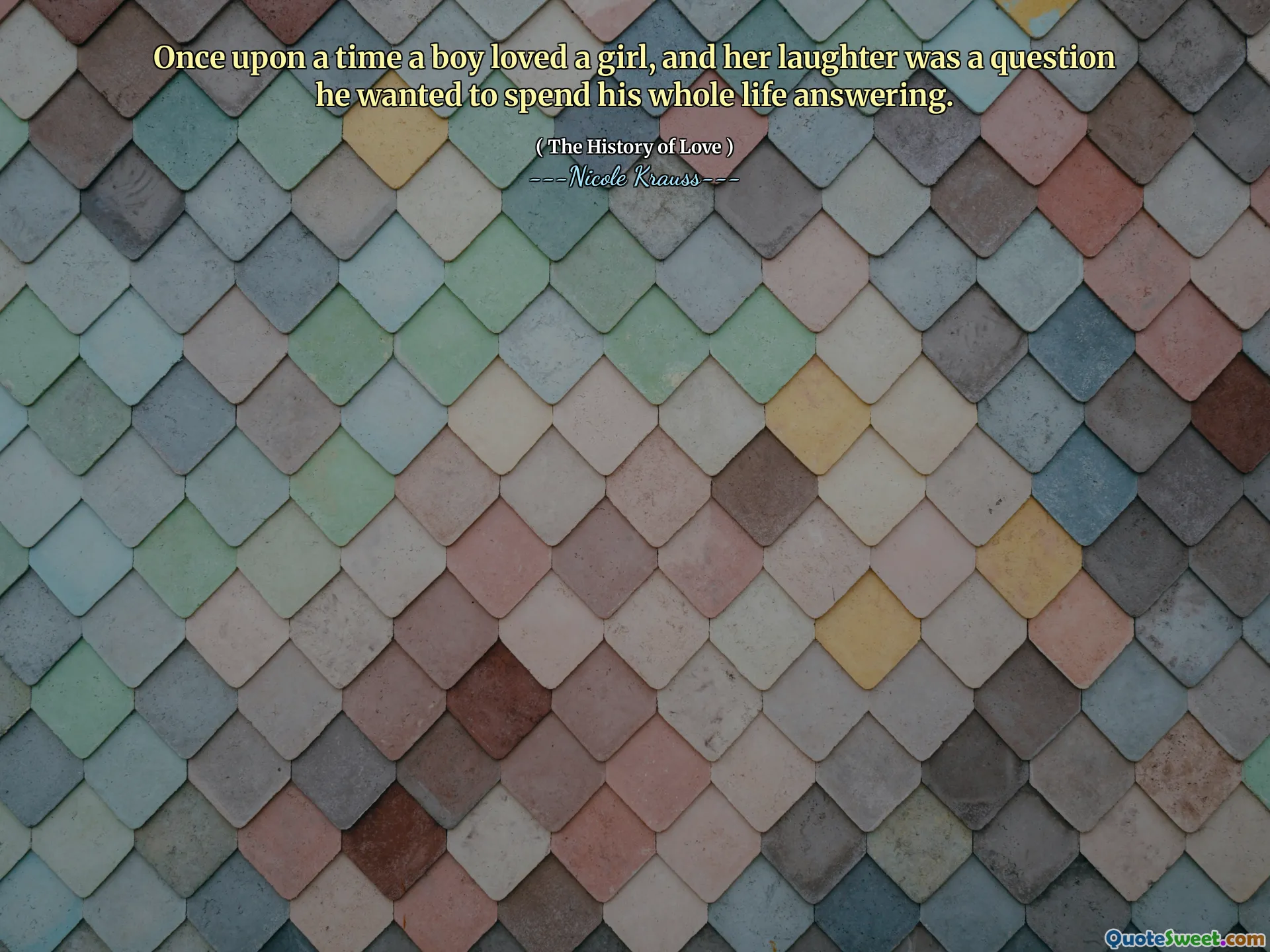
Once upon a time a boy loved a girl, and her laughter was a question he wanted to spend his whole life answering.
This quote from Nicole Krauss's The History of Love beautifully encapsulates the tender and enduring nature of love. The imagery of the boy's love for the girl as a lifelong quest to understand the mystery of her laughter conveys a depth of affection that transcends mere attraction or infatuation. It suggests that love is not just about possession or admiration but about curiosity and devotion—an unending desire to explore and cherish every nuance of the beloved's being.
Her laughter being characterized as a "question" is particularly poignant. Laughter is often spontaneous, joyful, and enigmatic. By likening it to a question, the quote implies that the boy views the girl's essence as something worth pondering, something that invites a lifetime of discovery. This portrayal highlights love's intellectual and emotional dimensions, suggesting that true love is as much about engaging the mind as it is the heart.
Moreover, the phrase "spend his whole life answering" evokes a sense of permanence and commitment. It communicates a willingness to invest time, energy, and emotional labor into a relationship. This echoes the universal human experience of love as an enduring journey rather than a fleeting moment.
In sum, this quote speaks to the transformative power of love—how it inspires curiosity, dedication, and an unfaltering devotion to another person’s happiness and mysteries. It is both a delicate and profound meditation on what it truly means to love someone deeply and intimately.








